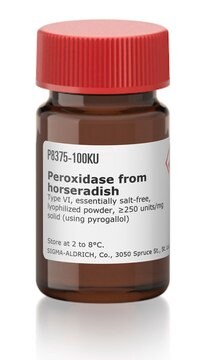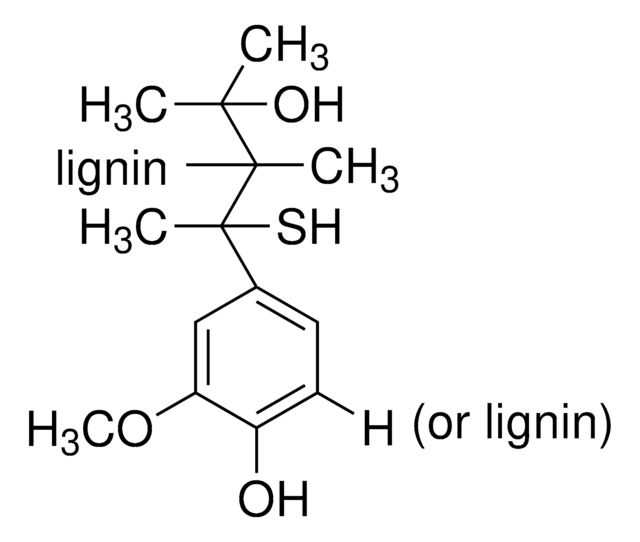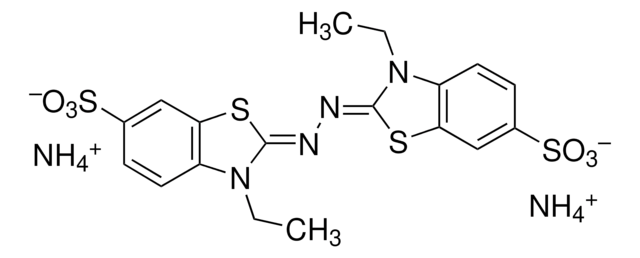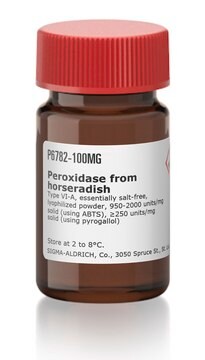38429
Laccase from Trametes versicolor
powder, light brown, ≥0.5 U/mg
Sinónimos:
Oxygen oxidoreductase
About This Item
Productos recomendados
form
powder
Quality Level
specific activity
≥0.5 U/mg
greener alternative product characteristics
Waste Prevention
Design for Energy Efficiency
Learn more about the Principles of Green Chemistry.
sustainability
Greener Alternative Product
color
light brown
greener alternative category
storage temp.
2-8°C
SMILES string
[n]1(c(c(cc1C)C=O)C)CC
InChI
1S/C9H13NO/c1-4-10-7(2)5-9(6-11)8(10)3/h5-6H,4H2,1-3H3
InChI key
NWDZDFOKSUDVJV-UHFFFAOYSA-N
¿Está buscando productos similares? Visita Guía de comparación de productos
Categorías relacionadas
General description
Application
- to assess the use of four laccase-producing strains in waste water treatment
- in laccase assay
- in screening the lignols
Biochem/physiol Actions
Unit Definition
Other Notes
signalword
Danger
hcodes
Hazard Classifications
Resp. Sens. 1
Storage Class
11 - Combustible Solids
wgk_germany
WGK 1
flash_point_f
Not applicable
flash_point_c
Not applicable
ppe
Eyeshields, Gloves, type N95 (US)
Elija entre una de las versiones más recientes:
¿Ya tiene este producto?
Encuentre la documentación para los productos que ha comprado recientemente en la Biblioteca de documentos.
Los clientes también vieron
Nuestro equipo de científicos tiene experiencia en todas las áreas de investigación: Ciencias de la vida, Ciencia de los materiales, Síntesis química, Cromatografía, Analítica y muchas otras.
Póngase en contacto con el Servicio técnico








